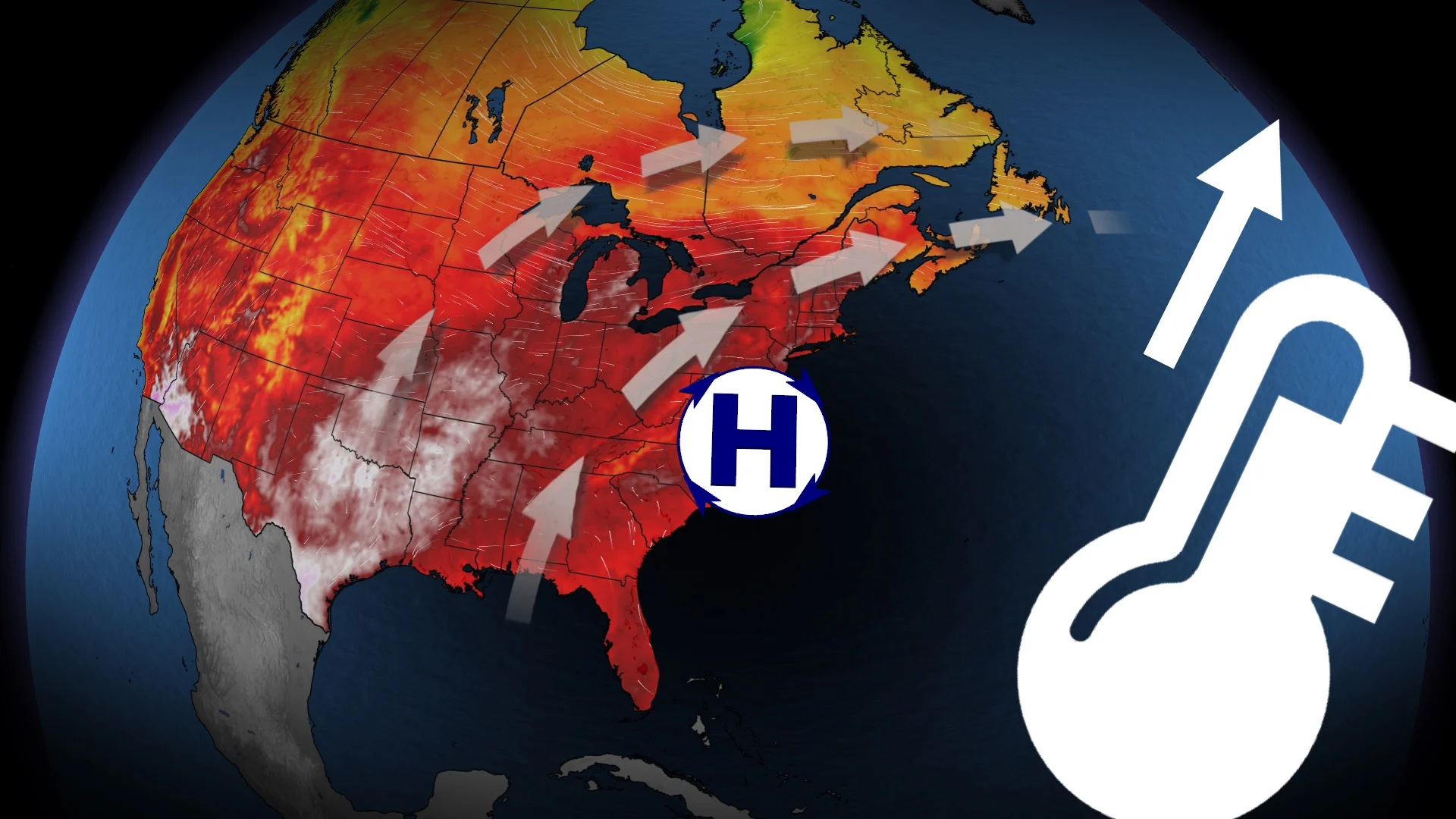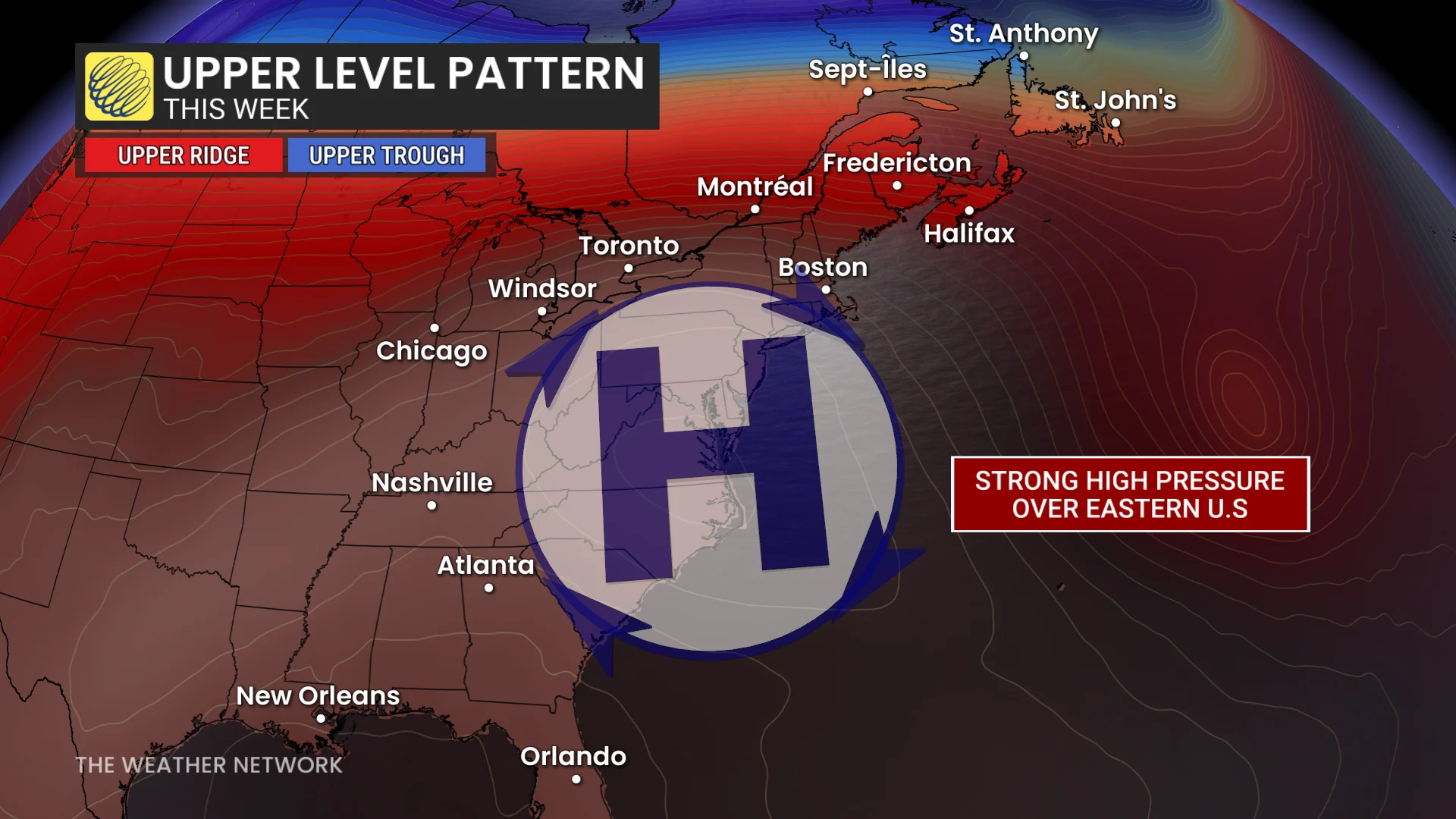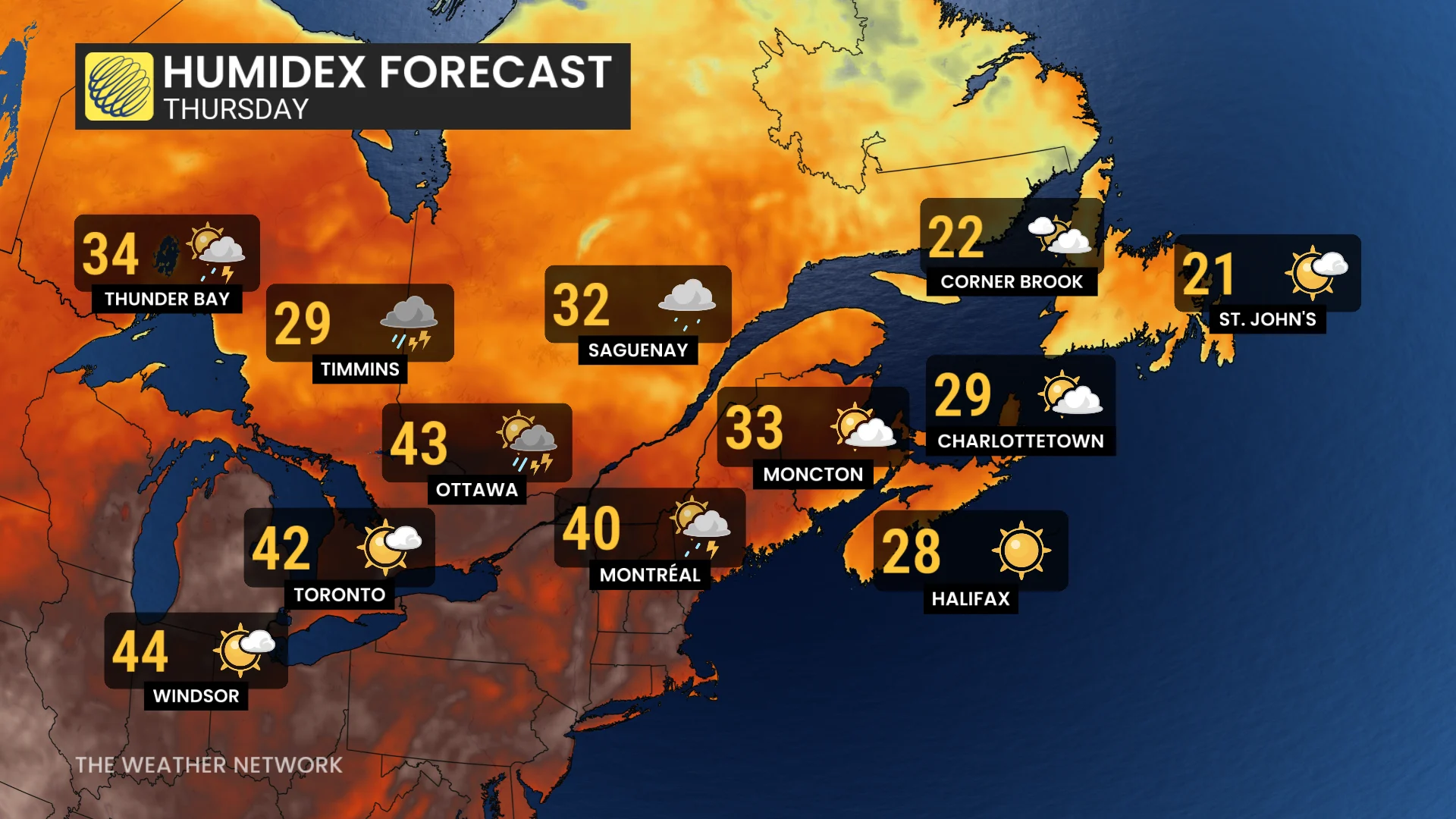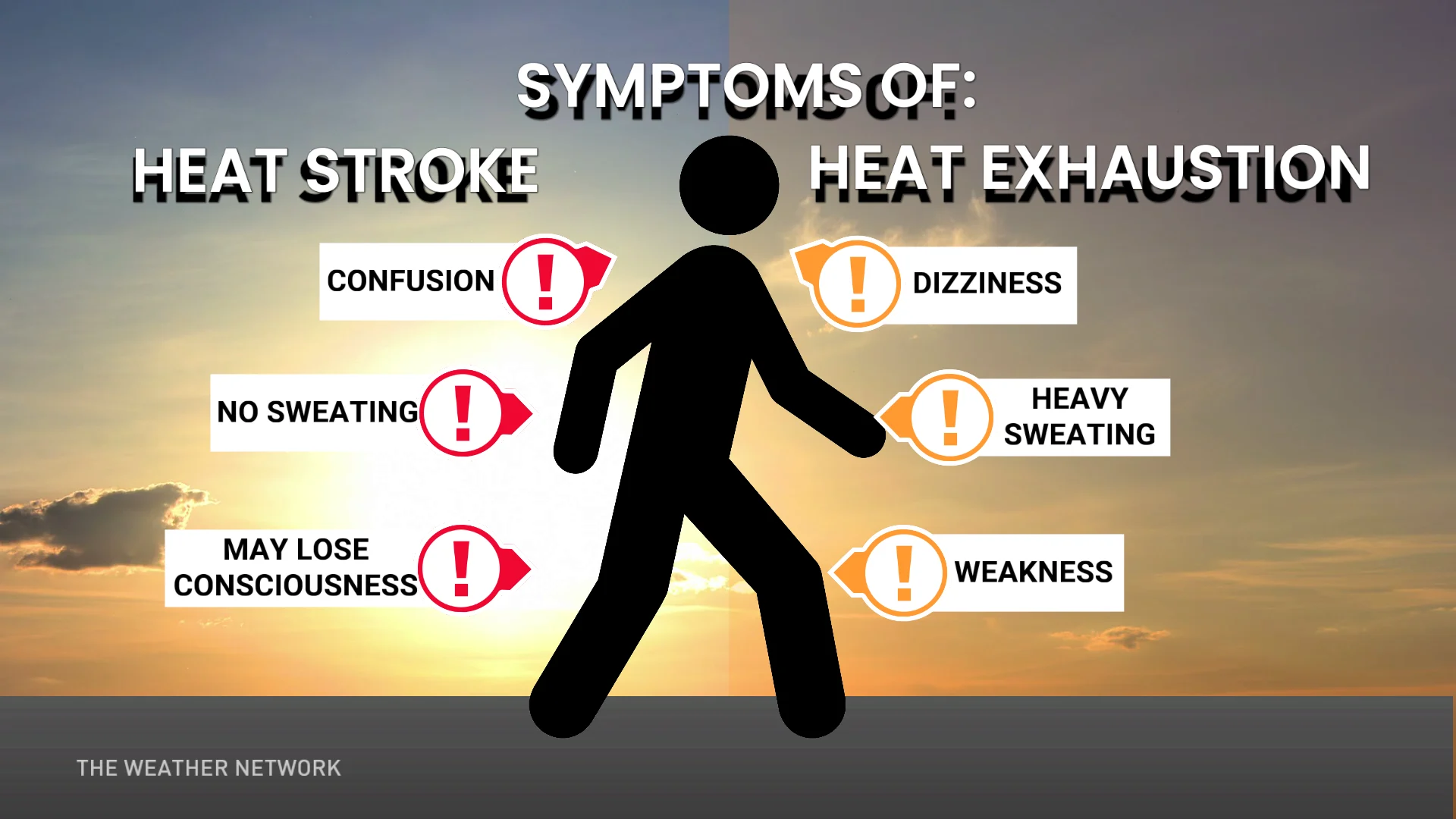
U.S heat will soon spill into Eastern Canada, bringing back 30 C weather
The intense heat set to grip parts of the U.S. may push northward this week, bringing humidity and above-seasonal temperatures back to portions of Eastern Canada.
While Eastern Canada is enjoying a reprieve from the intense heat that was in place recently, the mercury is going to climb into the 30s once again as warmth from the U.S. pushes northward across the border.
An intense heat event in the United States could briefly affect southern Ontario, Quebec and the Maritimes this week, pushing temperatures into the 30s once more.
SEE ALSO: Wildfire smoke, other extreme weather affecting Ontarians' vision: Poll
Take it easy in the hot weather as high heat and humidity can affect even healthy individuals.
What to expect with inbound heat in Eastern Canada
The warm and humid conditions currently being felt stateside will return to sizable portion of Eastern Canada by midweek, stretching from Ontario to the Maritimes, and continuing through early next week.
According to U.S. reports online, some 30 million Americans are under heat alerts at the moment.
As of Monday, heat advisories cover the Carolinas and Florida, extending west to Oklahoma and parts of Texas.

A region of high pressure is forecast to be on the move in the coming days, bringing more than 30-degree heat to more than 85 million people stateside.
The focus of the heat is forecast to move from the Gulf Coast into the eastern portions of the U.S., then moving into a good portion of Eastern Canada.
By midweek, parts of Ontario, Quebec and the Maritimes may be affected by it, allowing for the return of some brief, humid weather.

On Wednesday, a southwesterly flow returns, and so will humidity from the Gulf--steered into southern Ontario. Humidex will reach the 30s Wednesday and then push into the 40s on Thursday.
With that heat and humidity comes a rising thunderstorm risk.
A system held up in northern Ontario will eventually break through on Thursday and Friday, with storms rolling through the region.

Hot weather safety tips
Drink plenty of water. Avoid caffeine and alcohol, which can be dehydrating.
Avoid direct sunlight, especially during peak hours and when the UV rating is high.
Wear lightweight, loose-fitting clothing.
Use air conditioning when possible. If you do not have access to air conditioning, consider visiting a cooling centre, a shopping centre, or a public library.
Check on elderly relatives and other vulnerable neighbours.

Avoid strenuous activities during the hottest parts of the day.
If you experience symptoms of heat-related illnesses like dizziness, nausea, or confusion, seek medical attention.
Stay tuned to The Weather Network for the latest forecast updates for Eastern Canada.
With files from Rachel Modestino, a meteorologist at The Weather Network.
